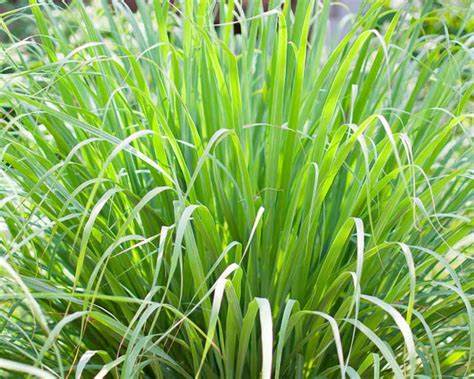Facts About Lemon Grass (Cymbopogon citratus)

Lemon Grass, scientifically known as Cymbopogon citratus is a common plant in Africa, the plant has been used for traditional herbal treatment of various health issues for a history memorial. It is widely used in culinary, medicinal, and cosmetic applications due to its aromatic, citrusy scent and numerous health benefits. Lemon grass contains chemical properties that help to treat mental health: microbial infections and many more.
Health benefits of Lemon grass Cymbopogon citratus
Lemon Grass, scientifically known as Cymbopogon citratus, is renowned for its variety of health benefits. Here are some of the key benefits:
- Digestive Health: It’s often used to alleviate stomach discomfort and other gastrointestinal issues, including cramps and vomiting. Lemongrass tea, in particular, is known to treat stomach ailments and indigestion.
- Antioxidant Properties: Lemongrass contains antioxidants that may help scavenge harmful free radicals in your body, potentially preventing disease.
- Antimicrobial Effects: It
- has been shown to have antimicrobial properties, which may be beneficial in treating oral infections and cavities.
- Anti-inflammatory: The compounds citral and geranial in lemongrass are thought to contribute to its anti-inflammatory benefits, which could be helpful in conditions like heart disease and stroke.
- Cancer Risk Reduction: Some studies suggest that lemongrass might have anticancer abilities against certain cancer cell lines.
- Mental Health: It’s used to help reduce stress, anxiety, and insomnia, contributing to overall mental well-being.
Lemongrass essential oil, derived from the plant, is also noted for its antifungal, antibacterial, antiviral, anticancer, and antioxidant properties. It can be used topically to treat headaches and musculoskeletal pain and inhaled as an aromatherapy treatment for muscle pain, infections, colds, or flu symptoms.
However, it’s important to note that while some of these uses are supported by scientific evidence, human studies are limited. Therefore, lemongrass should be used with caution, and it’s always best to consult with a healthcare provider before starting any new treatment.
Remember, moderation is key, and it’s essential to be aware of any potential side effects or allergies when incorporating new herbal remedies into your health regimen.
The chemical composition of Lemon Grass (Cymbopogon citratus)
Lemon Grass (Cymbopogon citratus) contains several chemical components that contribute to its health benefits and aromatic properties. Let’s explore them:
- Citral: Lemon grass oil is rich in citral, which constitutes 65–85% of the oil. Citral gives lemongrass its characteristic lemony scent and contributes to its antimicrobial, anti-inflammatory, and antioxidant properties.
- Myrcene: Another compound found in lemongrass oil is myrcene. It contributes to the overall aroma and may have additional health benefits.
- Citronellal: Lemongrass also contains citronellal, which has a citrus-like scent and is commonly found in other essential oils like citronella. It has insect-repellent properties
- Citronellol: This compound adds to the pleasant fragrance of lemongrass and is also found in rose oil. It has potential antioxidant effects.
- Linalool: Linalool is a terpene alcohol present in lemongrass. It contributes to the overall aroma and may have calming and stress-reducing effects.
- Geraniol: Geraniol is another terpene alcohol found in lemongrass. It has a rose-like scent and may have antioxidant properties.
Hydrosteam distillation is commonly used to extract the essential oil from lemongrass, separating it from water. These chemical components collectively contribute to lemongrass’s therapeutic properties and make it a valuable herb in traditional medicine, pharmaceuticals, food, and cosmetics.
How to Use Lemon Grass
Lemongrass is a versatile herb that can be used in various ways, both in culinary and non-culinary applications. Here are some creative ways to use lemongrass:
Culinary Uses:
- Cooking: Incorporate lemongrass into your cooking by adding it to soups, curries, and stir-fries. It pairs well with coconut milk, chiles, cilantro, and garlic.
- Tea: Make a soothing lemongrass tea by steeping pieces in hot water. You can enhance the flavour by adding honey, ginger, and mint leaves.
- Flavoured Syrups: Create flavoured simple syrups with lemongrass to use in drinks and cocktails.
- Marinades: Use lemongrass in marinades for chicken or fish to impart a citrusy flavour.
- Salads: Add very thin slices of lemongrass to salads for a fresh, lemony taste.
Non-Culinary Uses:
- Aromatherapy: Use lemongrass essential oil in diffusers to promote relaxation and reduce stress.
- Insect Repellent: The natural compounds in lemongrass act as an insect repellent, making it a great addition to homemade bug sprays.
- Skincare: Incorporate lemongrass oil into your skincare routine for its antiseptic and astringent properties.
Creative Twists:
- Drink Stirrer: Use a section of the lemongrass stem as a drink stirrer for a cocktail or homemade lemonade to add a subtle flavour.
- Kebab Skewers: Use the stem as a skewer to make kebabs of chicken or prawns.
- Flavour Enhancer: Place a stalk of lemongrass in a muslin sack and drop it in with rice before cooking to add a dash of flavour.
Remember to prepare lemongrass properly for consumption by removing the outer layers and using only the tender parts of the stalk. The tough, larger pieces are generally used for flavouring and are not eaten. Enjoy experimenting with this fragrant herb in your recipes and home remedies!
Safety and side effects of Lemon grass
Lemongrass is generally considered safe when used in food amounts. However, when used medicinally or in larger quantities, there are some precautions and potential side effects to be aware of:
- Oral Consumption: While lemongrass is commonly consumed in foods, the essential oil and dried leaves are possibly safe when used as medicine, short-term. High doses or long-term use may lead to adverse effects.
- Topical Application: Lemongrass essential oil is possibly safe when applied to the skin for short periods. Some individuals might develop a rash or skin irritation.
- Inhalation: Inhaling lemongrass essential oil as part of aromatherapy is possibly safe for most people. However, lung problems have been reported after inhaling lemongrass.
- Pregnancy and Breastfeeding: Lemongrass is likely unsafe when taken by mouth during pregnancy as it can stimulate menstrual flow, which might cause a miscarriage. There isn’t enough reliable information about the safety of using lemongrass during breastfeeding, so it’s best to avoid use.
- Interactions with Medications: Lemongrass might interact with some medications that are changed by the liver, and it could potentially increase the effects and side effects of sedative drugs like pentobarbital.
Common side effects may include:
- Dizziness
- Increased hunger
- Dry mouth
- Increased urination
- Tiredness
- Allergic reactions in some people
It’s important to consult with a healthcare provider before using lemongrass for medicinal purposes, especially if you are pregnant, breastfeeding, have a medical condition, or are taking medication. Moderation is key, and it’s crucial to listen to your body and be cautious of any adverse reactions.
External links
what are the health benefits of Lemon Grass (Cymbopogon citratus)
Safety and side effects of Lemon grass
How to Use Lemon Grass
The chemical composition of Lemon Grass (Cymbopogon citratus)

